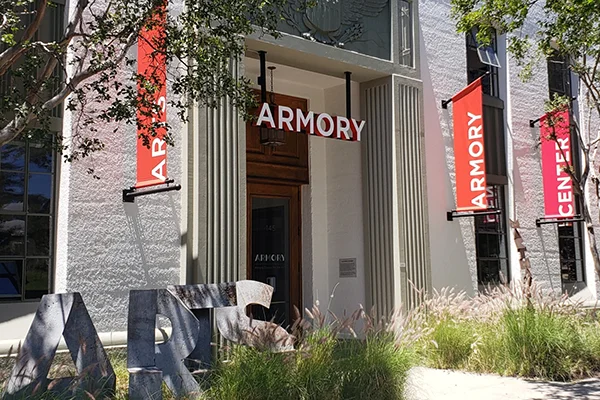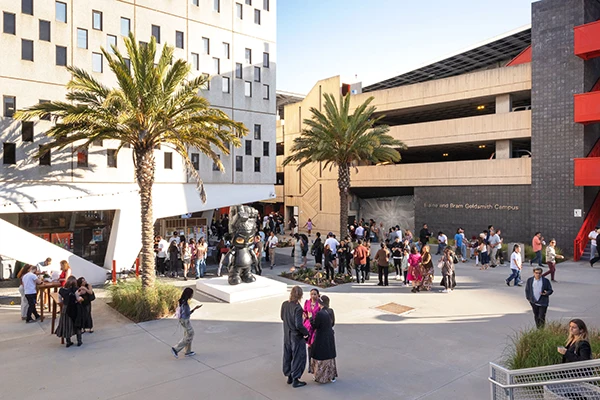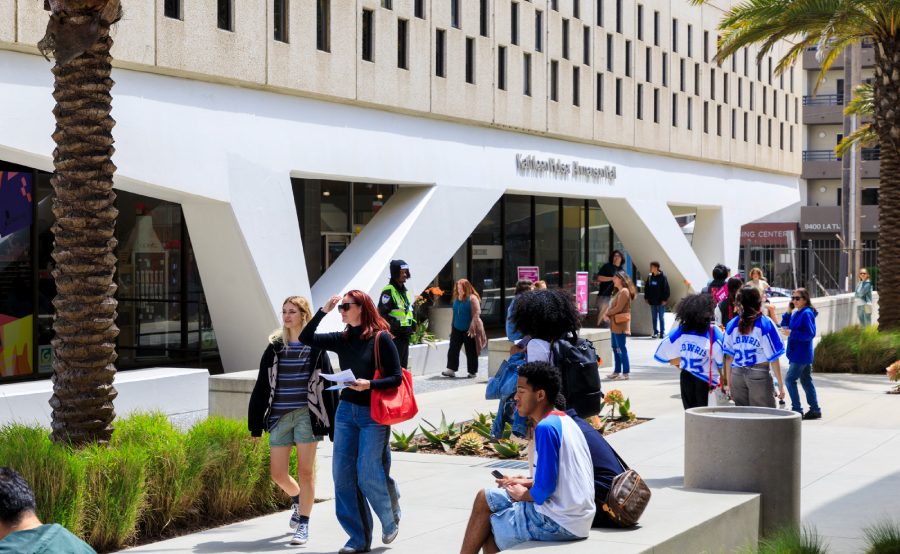An Interview with Otis College’s New Provost Colette Veasey-Cullors
“I’m excited about the potential to work more strategically with our alumni to advance our students’ career readiness even more.”
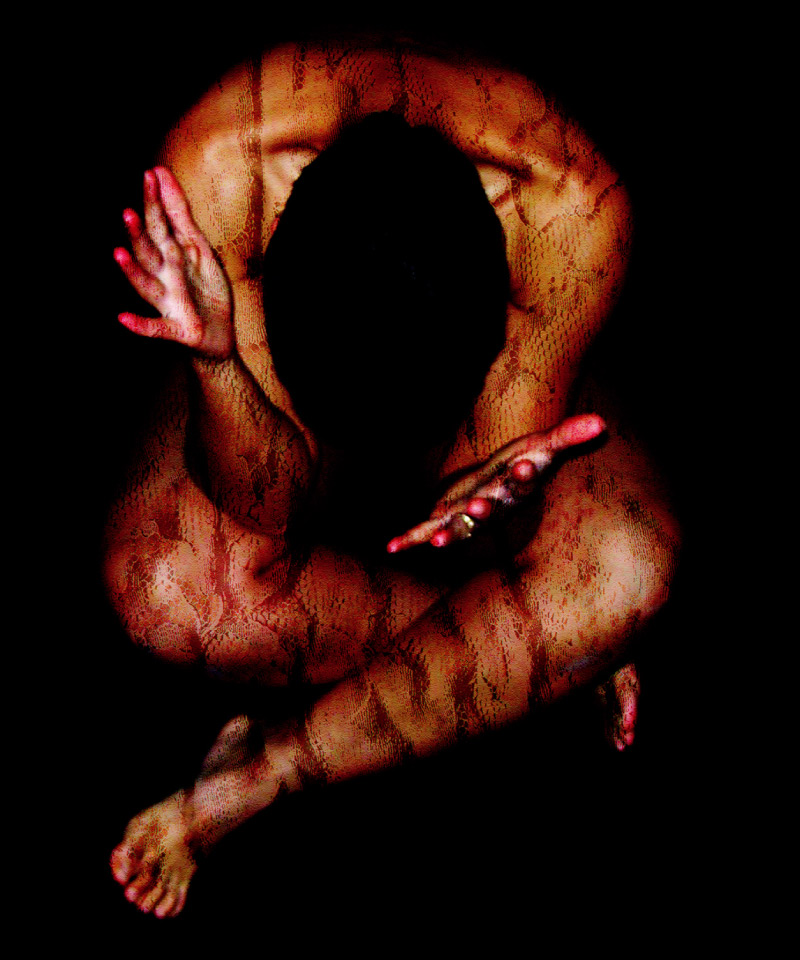
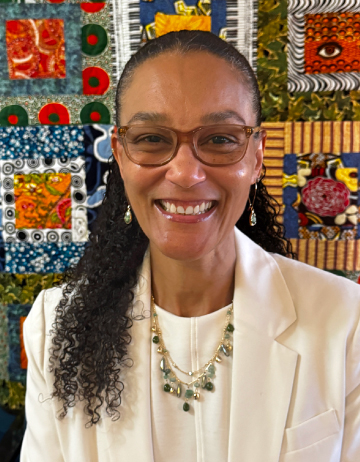 Artist, educator, and photographer Colette Veasey-Cullors began her role as Provost of Otis College this month. She relocated to Los Angeles from New York City, where she most recently
served as the Dean and Deputy Director of the International Center of Photography.
She’s also served as Interim Vice Provost for Undergraduate Studies at Maryland Institute,
College of Art (MICA) and as a tenured Associate Professor and Photography Area Coordinator
at Howard University. Veasey-Cullors focuses her educational and creative work around
an ethical framework: “All that I do within education and my artistic practice is
centered around the philosophy of opportunity, equity, transparency, access, and the
sustainability of one’s artistic practice.”
Artist, educator, and photographer Colette Veasey-Cullors began her role as Provost of Otis College this month. She relocated to Los Angeles from New York City, where she most recently
served as the Dean and Deputy Director of the International Center of Photography.
She’s also served as Interim Vice Provost for Undergraduate Studies at Maryland Institute,
College of Art (MICA) and as a tenured Associate Professor and Photography Area Coordinator
at Howard University. Veasey-Cullors focuses her educational and creative work around
an ethical framework: “All that I do within education and my artistic practice is
centered around the philosophy of opportunity, equity, transparency, access, and the
sustainability of one’s artistic practice.”
Veasey-Cullors’s work has been shown at The California African American Museum in Los Angeles; Daegu Culture and Arts Center in Daegu Dongsan, Korea; The African American Museum in Philadelphia; The Museum of Fine Arts Houston/Glassell School of Art; and The Chattanooga African American Museum, and is included in the permanent collections of the National Museum of African American History and Culture (NMAAHC) and in the Photographic History Collection of the National Museum of American History, both of the Smithsonian Institution. She often works through themes of race, class, socioeconomics, education, and identity, with a focus on historically underrepresented communities. She obtained her BFA in photography from the University of Houston and her MFA in photography from MICA.
Veasey-Cullors recently took a moment during her move to L.A. to share more about her background and her goals and hopes for her new role at the College.
What excites you most about working for Otis College?
The dynamic and diverse community is what excites me the most. The Otis approach to art and design is centered around the growth and development of the whole student. They are being prepared to master their discipline, but also how to be positive and creative citizens of the world prepared to shape creative industries.
You have an MFA in photography and are a practicing artist. Does that influence how you approach your administrative work and how you think about career readiness and post-college opportunities?
My approach to my artistic practice is not separate from my approach to teaching or administrative leadership. It’s all based on my belief that we have a responsibility to structure and approach our work through an ethical framework. My undergraduate mentor, Suzanne Bloom, was important in my early development and commitment to creating space for all, especially those historically disenfranchised. My graduate mentor, Dr. Deborah Willis, also reinforced this commitment for me. All that I do within education and my artistic practice is centered around the philosophy of opportunity, equity, transparency, access, and the sustainability of one’s artistic practice. This means prioritizing career readiness, including understanding budget planning, grant writing, interview skills, portfolio development, website development, alumni mentoring, etc.
All that I do within education and my artistic practice is centered around the philosophy of opportunity, equity, transparency, access, and the sustainability of one’s artistic practice."
What’s an experience or lesson from your career in higher education that you value?
There are so many lessons because I’ve held so many different positions: adjunct faculty, full-time faculty, department chair, associate dean, deputy director, and vice provost. Each of those positions taught me something very valuable. I would say that, overall, a very valuable lesson has been to know and believe in your value. If you are true to yourself and always remain honest and transparent with your beliefs, values, morals, and decisions, you will usually be and end up on the right side.
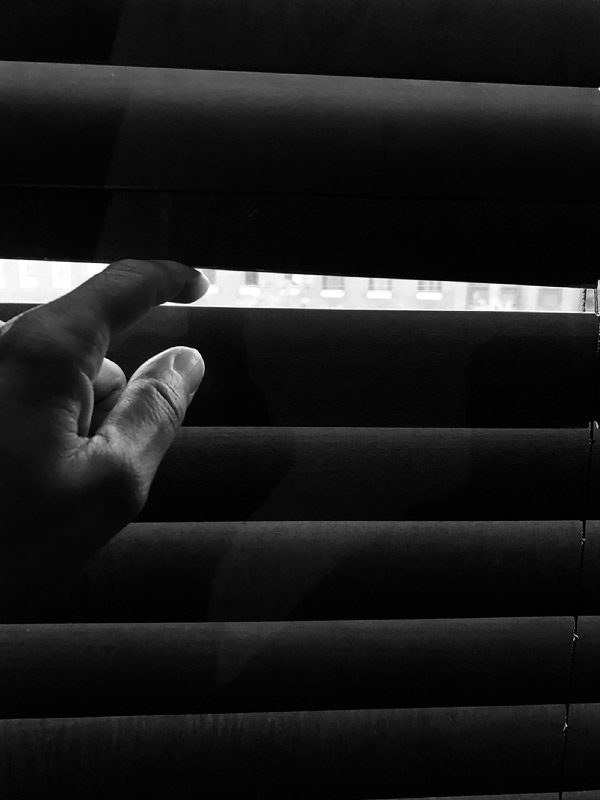
What are some of your more immediate priorities as provost, and what are some other long-term ambitions for the College?
My first priority is to build positive relationships with the Otis community of faculty, staff, and students while learning the inner workings of the College. I can’t make informed decisions without first intimately understanding how the College is currently structured. The Otis community will be a wealth of information and insight for me. With that said, I’m excited about the potential to work more strategically with our alumni to advance our students’ career readiness even more. I’m also a big advocate of collaboration and partnerships, especially globally. This will be a priority for me.
How would you characterize your creative practice? Has working with students shaped this in any way?
My creative practice is multi-dimensional in its approach. I am a conceptual, documentary, and community-based photographer. All of these approaches to creativity also focus deeply on platforms for those who are historically marginalized. As a professor of photography, my students at every level of instruction will better understand their art making in relation to ethics. They will always be asked to think about how they make, why they make, how their work manifests itself in the world, and how others—fully diversified others—engage with their work.
What excites you most about living on the West Coast?
I’ve been on the East Coast for 30 years and grew up in southwest Texas. I’m ready for a completely different environment. Most recently I’ve been working in New York City. I’m eager for the West Coast landscape and the friendliness that has been shown to me so far.
What tips/recommendations about Los Angeles are you most interested in getting from members of the Otis community?
I love meeting new people and building my network and community, so introductions are very welcome. Also—where are the alternative and grassroots art venues and community-based art programs?
What else would you like the Otis community to know about you?
I am a person who commits myself 100% and will give 100%. I always try my best to be transparent and honest. I truly believe that we are stronger together and that our differences are what makes us stronger, but only if we are respectful and truly honor those differences.
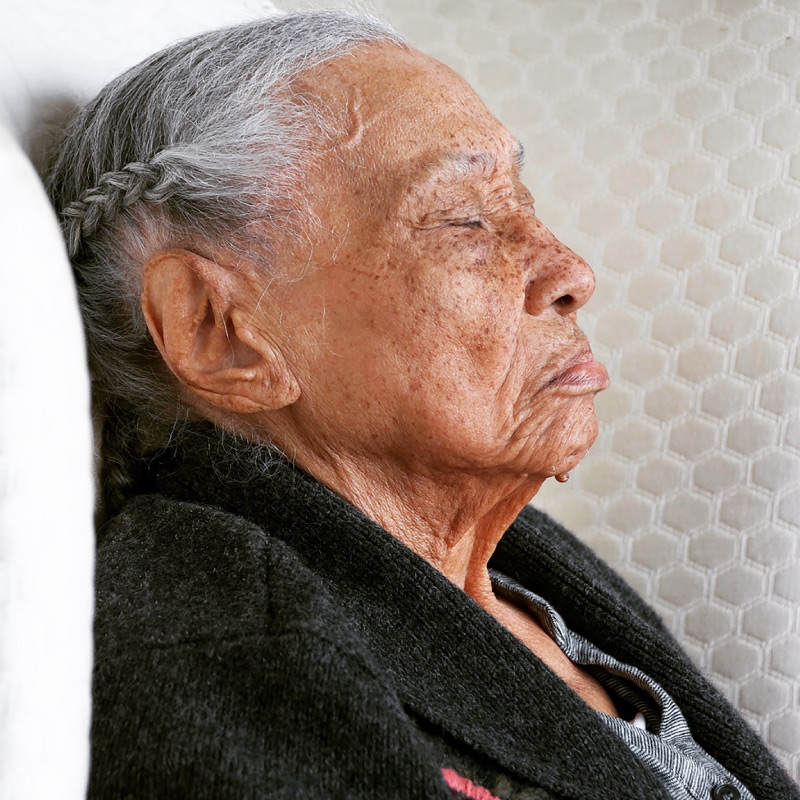
Related News
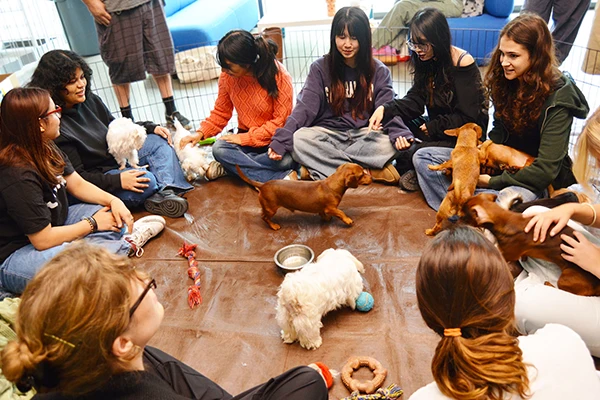
Otis College Students are Supported by a Wraparound Network of Care
February 13, 2026
